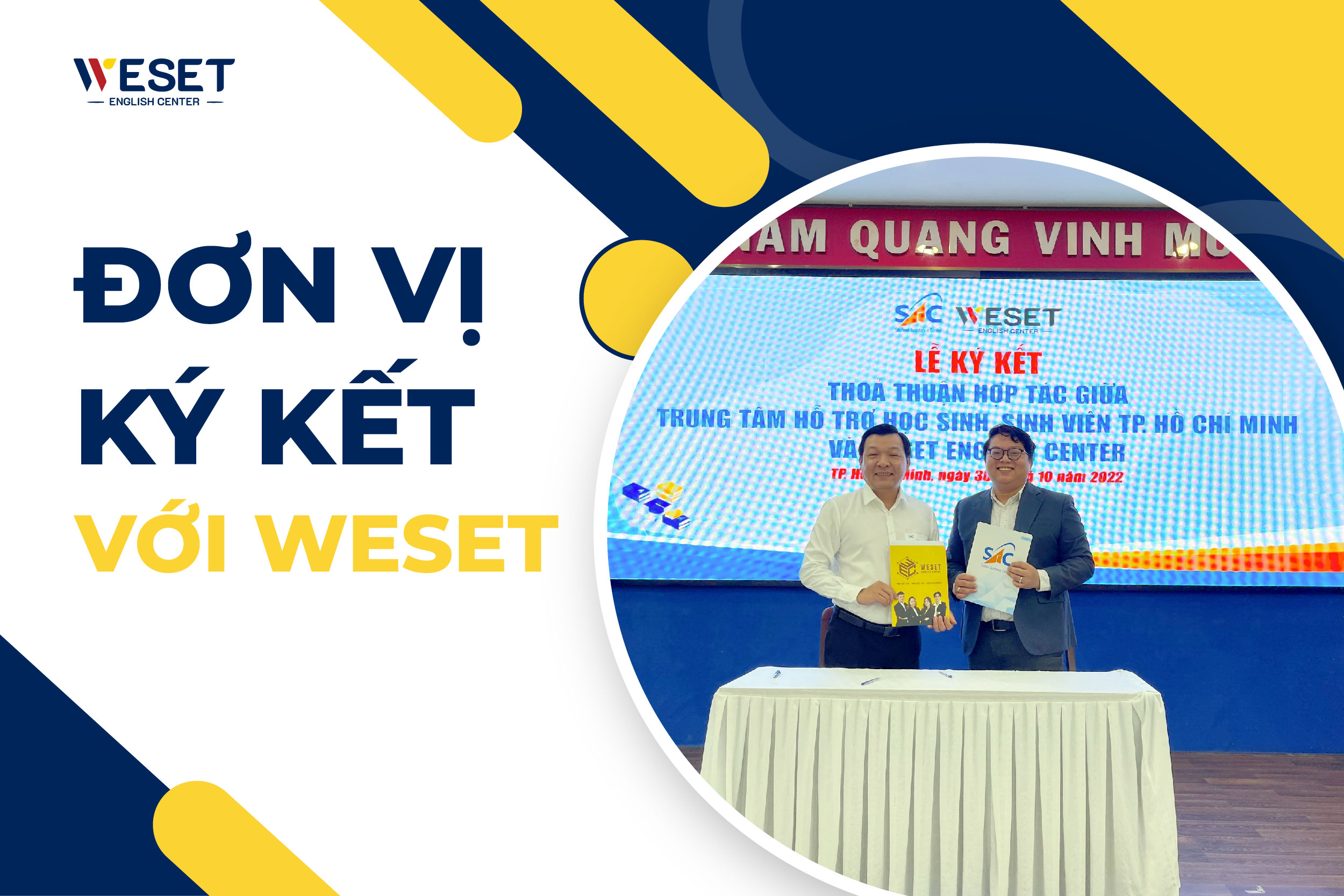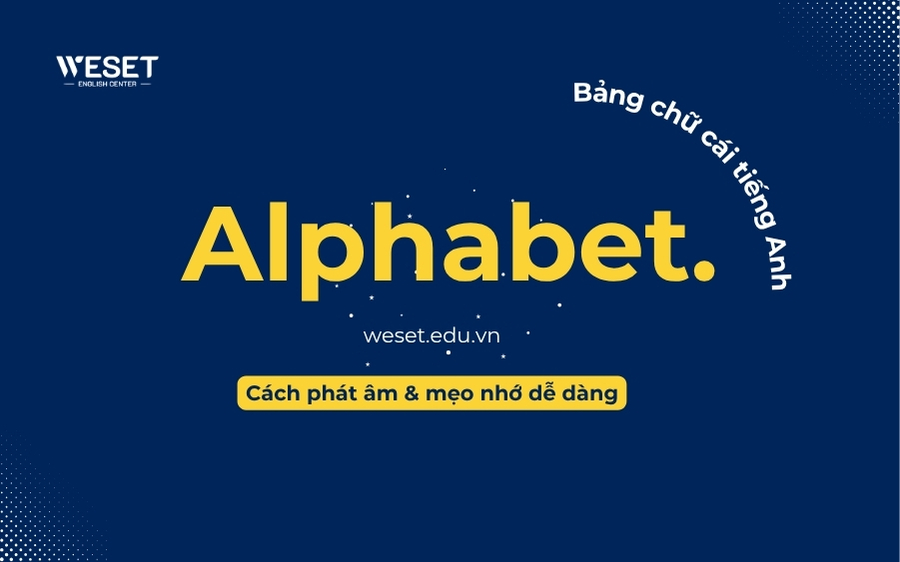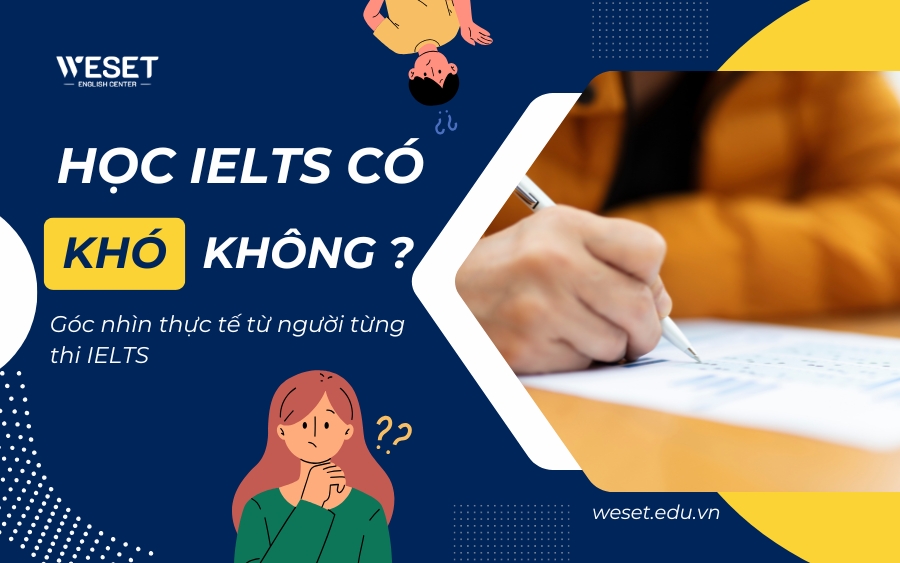Trang chủ Blog Bài thi IELTS mẫu IELTS Speaking Culture – Sample Part 1, 2 & 3
IELTS Speaking Culture – Sample Part 1, 2 & 3
- Jonathan M. Pham
- Bài mẫu IELTS Sample Speaking, Bài thi IELTS mẫu
MỤC LỤC
Trong thời buổi hội nhập hiện nay, không có gì lạ khi văn hóa (culture) trở thành một trong những chủ đề được nhiều người quan tâm – thực tế, đây cũng là một topic Speaking thi thoảng xuất hiện trong bài thi nói IELTS. Đến với series bài mẫu hôm nay, hãy cùng WESET tìm hiểu về topic IELTS Speaking Culture bạn nhé!
IELTS Speaking Culture – Part 1
Do you think it’s important to preserve traditional culture? Why or why not?
Absolutely, preserving traditional culture is of utmost importance. Culture reflects a society’s identity, values, and heritage. It provides a sense of belonging and continuity for future generations. By conserving our cultural traditions, we ensure that our history and unique practices are passed down, enriching our lives and fostering a stronger sense of unity among people.
Have you ever experienced a different culture while traveling? How did it impact you?
Yes, during my trip to Japan, I experienced a completely different culture, and it left a profound impact on me. The way Japanese people value politeness, harmony, and respect for others was striking. It made me reflect on my own culture and encouraged me to be more mindful of others’ feelings and to cherish these universal human values. Traveling and immersing myself in another culture broadened my perspectives and made me more open-minded.
How can people in today’s world embrace and appreciate cultural diversity?
Embracing and appreciating cultural diversity can start with education and exposure. Encouraging cross-cultural interactions through events, festivals, and workshops can promote understanding and appreciation. Additionally, fostering a welcoming environment for immigrants and refugees helps in embracing the richness of diverse cultures. Respect for different customs and traditions also plays a vital role. By recognizing that cultural diversity enhances our global community, we can move towards a more harmonious and accepting world.
Do you think language is an essential part of culture?
Absolutely, language is a fundamental aspect of culture. Language carries the collective knowledge, history, and identity of a community. It is through language that stories, folklore, and traditions are passed down from one generation to the next. The nuances of a language often reflect the unique perspectives and values of its speakers. Preserving and promoting linguistic diversity is crucial to safeguarding the cultural heritage of different societies.
IELTS Speaking Culture – Part 2
Describe a traditional custom or festival in your country. You should say:
- When and where does it usually take place?
- What are the customs and activities during this celebration?
- Explain why this custom or festival holds significant cultural importance in your country.
Model Answer:
One of the most cherished and culturally significant festivals in my country, Vietnam, is “Tet” – also known as the Vietnamese Lunar New Year. It is a traditional celebration that marks the beginning of the lunar new year and is eagerly awaited by people across the country. Tet typically takes place between late January and mid-February, depending on the lunar calendar, and it lasts for several days.
During Tet, Vietnamese families engage in thorough preparations to welcome the new year with joy and prosperity. One of the most prominent customs is thoroughly cleaning and decorating the house to get rid of bad luck and welcome good fortune. Vietnamese families often adorn their homes with colorful flowers, especially peach blossoms, and kumquat trees, symbolizing wealth and longevity.
Another essential aspect of Tet is the preparation and consumption of special traditional dishes, with “banh chung” and “banh tet” being the most iconic. These are sticky rice cakes filled with mung bean and pork, carefully wrapped in banana leaves. The preparation of these delicacies is a cherished family activity, promoting togetherness and unity.
During Tet, it is customary for family members to visit their elders, offer their wishes for a prosperous year ahead, and present them with lucky money in red envelopes. This act of giving symbolizes respect and gratitude towards the older generation and reinforces the bond within the family.
Tet is of immense cultural importance in Vietnam as it represents not only the renewal of the lunar year but also an opportunity for people to express their gratitude, show filial piety, and uphold traditional values. The festival is a time for reunions, forgiveness, and strengthening family ties. It brings a sense of unity and harmony among the Vietnamese people, as they collectively embrace their cultural heritage and welcome the future with hope and optimism.
Overall, Tet is an embodiment of the Vietnamese identity, instilling a strong sense of pride in their cultural roots and fostering a deep appreciation for the values that have been passed down through generations.
IELTS Speaking Culture – Part 3
How has globalization impacted traditional cultures in your country?
Globalization has undoubtedly left its mark on traditional cultures in my country. With the increased interconnectedness and ease of travel, exposure to foreign cultures has become more accessible. As a result, some aspects of our traditional culture have been influenced and, in some cases, modified to incorporate global trends. While this has brought about a more diverse and open society, there is a concern that certain unique customs and practices might be at risk of fading away. Therefore, it is essential for us to strike a balance between embracing globalization and preserving our cultural heritage.
Do you think the government should play a role in preserving cultural heritage? Why or why not?
Absolutely, the government should play an active role in preserving cultural heritage. Cultural heritage represents a nation’s identity and is a valuable asset that needs protection. The government can allocate funds to support cultural programs, festivals, and initiatives that promote traditional arts, crafts, and practices. Additionally, implementing policies that safeguard historical sites and artifacts can ensure their conservation for future generations. By actively participating in the preservation of cultural heritage, the government not only maintains a sense of national pride but also contributes to the country’s tourism and cultural industries.
How can young people be encouraged to take an interest in traditional culture?
Encouraging young people to take an interest in traditional culture requires a multi-faceted approach. Firstly, integrating cultural education into school curriculums can expose students to their heritage from an early age. Organizing interactive workshops, cultural exchange programs, and field trips to historical sites can also make learning about traditions more engaging and immersive. Furthermore, incorporating modern elements into traditional art forms, such as blending traditional music with contemporary styles, can attract the interest of younger audiences. Additionally, promoting cultural events on social media platforms can reach a wider audience and create a sense of excitement and curiosity among the youth.
Is it possible for a country to embrace globalization without losing its cultural identity?
Yes, it is entirely possible for a country to embrace globalization without losing its cultural identity. Globalization does not have to lead to cultural homogenization. Instead, it can be an opportunity for cultural exchange and enrichment. By actively preserving and promoting traditional practices, customs, and languages, a country can safeguard its unique cultural identity while still engaging with the world. Embracing globalization can also foster a sense of openness and tolerance, allowing people to appreciate and respect diverse cultures without compromising their own. It is all about finding a delicate balance between being open to new ideas and influences while cherishing and preserving one’s cultural roots.
Từ vựng IELTS Speaking Culture Vocabulary
| English Word/Phrase | Vietnamese Translation |
|---|---|
| Culture | Văn hóa |
| Traditional | Truyền thống |
| Festival | Lễ hội |
| Customs | Phong tục |
| Celebrate | Tổ chức |
| Heritage | Di sản |
| Identity | Bản sắc |
| Society | Xã hội |
| Unity | Đoàn kết |
| Globalization | Toàn cầu hóa |
| Impact | Ảnh hưởng |
| Preserve | Bảo tồn |
| Interconnectedness | Liên kết |
| Exposure | Tiếp xúc |
| Unique | Độc đáo |
| Incorporate | Kết hợp |
| Conservation | Bảo tồn |
| Tourism | Du lịch |
| Cultural exchange | Trao đổi văn hóa |
| Tolerance | Sự khoan dung |
| Homogenization | Đồng nhất hóa |
| Enrichment | Bổ sung |
| Curiosity | Tò mò |
| Intangible cultural heritage | Di sản văn hóa phi vật thể |
Lời kết
Trên đây là tổng hợp bài mẫu – kèm gợi ý trả lời & từ vựng hữu ích cho chủ đề IELTS Speaking Culture. Hãy dành thời gian tham khảo thư viện bài mẫu IELTS theo chủ đề của WESET và luyện tập thường xuyên mỗi ngày để thêm thành thục hơn bạn nhé!
Sample Speaking theo các chủ đề khác:







